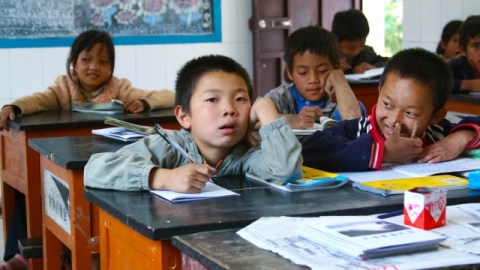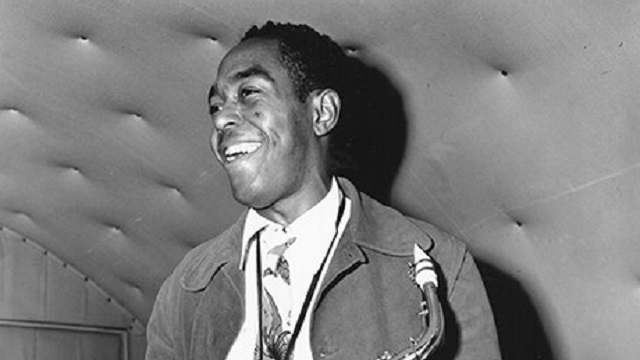Can Asians think? Yes, and no

“This is the character of the Chinese people […] unconstrained morality, in practice and theory, Heart, inward Religion, Science and Art properly so-called – is alien to it. […] The Emperor always speaks with majesty and paternal kindness and tenderness to the people; who, however, cherish the meanest opinion of themselves, and believe that they are born only to drag the car of Imperial Power.” –G. W. F. Hegel
BEIJING – A book published in 2001 entitled ‘Can Asians think?‘ recently surfaced on my desk again after me having met its famous author, Kishore Mahbubani, in Beijing in October 2013. Mr. Mahbubani is a Dean, professor, former diplomat, and author of other East-West books like his latest ‘Asia, the West, and the Logic of One World‘ or, his best known one: ‘The New Asian Hemisphere‘.
The ‘Can Asians think?‘ question, to me at least, is both rhetorical and self-deprecating, if not self-loathing. Asia was believed to be on top of things until small European powers set out to colonize the world. That Asians can think is unquestionably the case ever since Rene Descartes, the French philosopher, reminded us that he who thinks must necessarily exist – Cogito, ergo sum -; yet what Mr. Mahbubani has in mind, I reckon, is the worthwhileness of that Asian thinking.
In other words, is this “I think therefore I am” still a pleasant experience if the “I” turns out to be, say, a person from the third world or the impoverished south? Mr. Mahbubani belongs clearly to the global intellectual elite; yet he, too, must have felt or observed the disadvantages many Asian thinkers face in a world almost exclusively dominated by Western thought and theories.
Leaving the great Western philosophers, inventors, and Nobel Laureates aside, the Western hemisphere for the last 300 years of Western imperialism, colonialism, and orientalism, has been credited with leading humanity not only into bloody wars but also into the Ages of the Enlightenment, Sciences and Technologies, Modernity, Globalization, and, finally, the total Westernization of economics, politics, scholarship, education, entertainment, and the arts.
Even uniquely Asian originals – in name, theory, and practice – can only achieve global recognition and credentials – like Confucianism, Taoism, and Buddhism – if those traditions are studied and understood by the West, e. g. recognized by leading Western scholars; and it is still the case, as a general rule, that Asians who want to study their own cultures, must do so in the United States or Europe simply because it’s in the West where they will find all the theories.
Chinese schools are infamous for their emphasis on rote-learning, endless repetition, and the recitation of classical text as well as the occasional party propaganda ad nauseam. There is little critical reflection on what has been learned, little analysis, and little room for creativity. But they are good at learning, imitating, and preparing for tests, and (almost) never question or challenge their teachers and professors.
And even those thinkers who break out and away from the Chinese tradition (perhaps, by studying abroad) face the harsh reality upon their return: Thought cannot be free in an authoritarian society. In China, scholars are officially encouraged to be creative and innovative, but not so in politics, psychology, history, ethics, philosophy, and the social sciences because there the Communist Party of China already has all the right answers.
Mr. Mahbubani, of course, isn’t Chinese but Singaporean. It is his theory that stands and falls with the idea of China as the next superpower. He argues in this book (and his three others) that the East, having absorbed and mastered all the (useful) Western theories, is now coming back onto the stage of World history (in a Hegelian sense) with some sort of peaceful vengeance. What is more, the Asians were always thinking, Mr. Mahbubani argues, but silently and quite differently from the West and therefore were never fully understood, letting alone appreciated, by Western policy makers until now.
This line of argument falls well into the well-known East-West dichotomy which entails that there is some kind of benign, spiritual competition going on between East and West, as ancient as the ‘Greeks versus the Persians’ romance, that has seen the West beating and crushing down on the East throughout the centuries competing not only for world dominance but also for the arts, ethics, technologies, and all the better theories.
What are those better theories? Well, you may want to read the book yourself, but it seems to me that Mr. Mahbubani bases the rise of Asia by and large on the failings of the West. There’s a lot of talk about wake-up-calls, warnings, dangers, and decadence. Mr. Mahbubani believes that certain Asian values like hard-working, filial piety, love for learning, patriarchy, and Confucian family values may have been ill-advised in the past but – judging from the success of (quasi-) Confucian societies like Singapore, Taiwan, Hong Kong, and China – might be just the right, winning formula to global success in the 21st century, and with it a revival of China – with India and the global south in tow.
Having said all that, despite Asia’s rise little has been reported on what Asian intellectuals truly think when they are not just thinking about the West. Mr. Mahbubani’s education, career, and intellectual output (he studied in Canada and writes in English) are but the products of his own westernization.
Image credit: Hung Chung Chih/Shutterstock.com
To keep up to date with this blog you can follow me on Twitter, RSS, my Website, or my other Blog.




